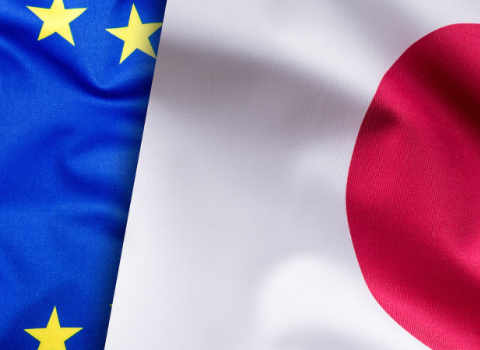A group of Belgian universities has joined calls for EU cooperation with Israel to end, and criticised Brussels for its inaction

Photo credits: Taylor Brandon / Unsplash
Academia is growing increasingly vocal in its calls for scientific ties between the EU and Israel to be suspended, given the continuing military offensive and humanitarian crisis in Gaza. The latest to call for action, and criticism of the EU institutions, comes from 10 Belgian universities in the country’s French-speaking and Flemish rectors’ councils.
Despite evidence of civilian casualties, blockades on humanitarian aid and arbitrary arrests, “Europe remains unbearably silent,” the universities said in a statement released on May 14. “That uncomfortable truth erodes our international credibility.”
While not large, the group includes one of Europe’s highest ranked research universities, KU Leuven, along with research-intensive peers Ghent University and UCLouvain, and the two major universities in Brussels. Their call comes as EU member states, meeting in the Foreign Affairs Council on May 20, prepare to review relations between Israel and the 27-member bloc.
Earlier this month, Dutch foreign minister Caspar Veldkamp wrote to the EU’s foreign policy chief Kaja Kallas, urging her to review the EU-Israel trade agreement, which covers cooperation in a range of areas, including science. His initiative has since been publicly backed by a number of other European governments.
French president Emmanuel Macron, who recently said that Israel’s blockade of aid to Gaza was “shameful,” confirmed that the suspension of EU-Israel ties was open for discussion. In Finland, foreign minister Elina Valtonen also expressed willingness to reconsider the deal if aid continues to be withheld.
For the rectors, the actions of the Israeli government call the whole treaty into question. “Suspending the agreement is not an extreme demand but a logical consequence of the treaty’s own provisions,” their statement says. “Holding Israel accountable for ongoing human rights violations is not an ideological stance, but a moral and legal necessity.”
This is not the first such call to come from academia. Last year, over 2,000 European academics backed a petition in favour of the termination of the EU-Israel treaty. Protests have also spread across university campuses in Europe, and a growing number of universities are ending their ties with Israel.
Related articles
- Left MEPs raise concern over Horizon Europe funding to Israel
- Academic boycotts over Gaza war jeopardise Israel’s place in Horizon Europe
The 76 members of Spain’s Conference of University Rectors have committed to suspending collaborations with Israeli universities, while individual boycotts have been announced by Ghent University and OsloMet University.
Others are taking more targeted action. The University of Ljubljana has said it will vet future potential Horizon Europe partners from Israel for connections to the military or their support for violence. And Leiden University has said it will no longer admit exchange students from the Hebrew University of Jerusalem and Tel Aviv University until after an evaluation.
Discrimination
There is much less criticism of research cooperation between the EU and Israel from the EU institutions, with only the Left political group in the European Parliament arguing for a change in the status quo.
For Christian Ehler of the European People’s Party, a prominent voice in the Parliament when it comes to research policy, the Belgian initiative is a clear example of discrimination. “There can be no question about Israel’s association to the EU and its participation in Union programmes,” he told Science|Business.
“The statement from the Belgian universities shows that they want to treat Israel differently from any other international partner,” he went on, adding that ethics assessments for Horizon projects are always done on a case-by-case basis.
He called on the Commission “to stand firmly for the participation of Israel in the Framework Programme.”
The Commission was contacted for comment.
Editor’s note: this story has been updated to reflect the full range of universities involved in the statement.





 A unique international forum for public research organisations and companies to connect their external engagement with strategic interests around their R&D system.
A unique international forum for public research organisations and companies to connect their external engagement with strategic interests around their R&D system.